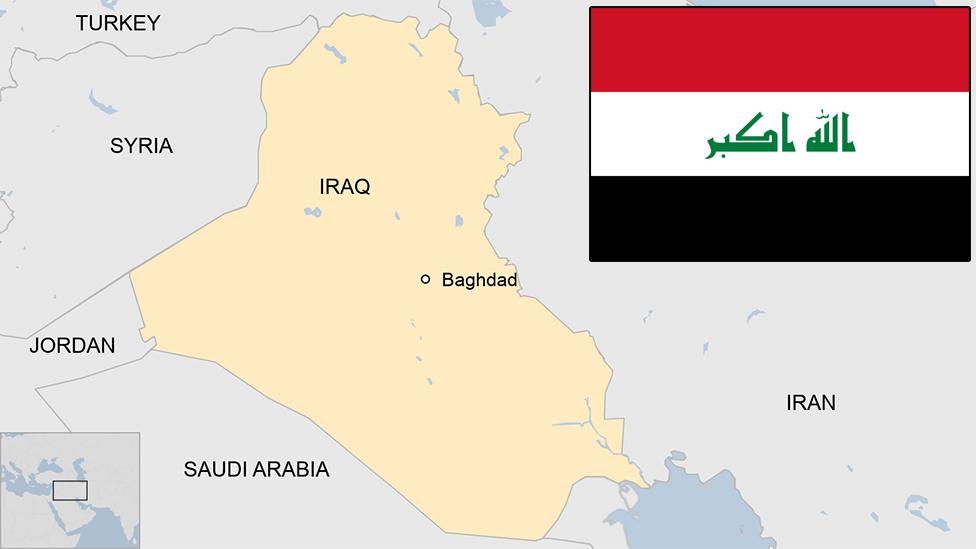Baghdad suicide bombers kill dozens in attack on labourers
- Published
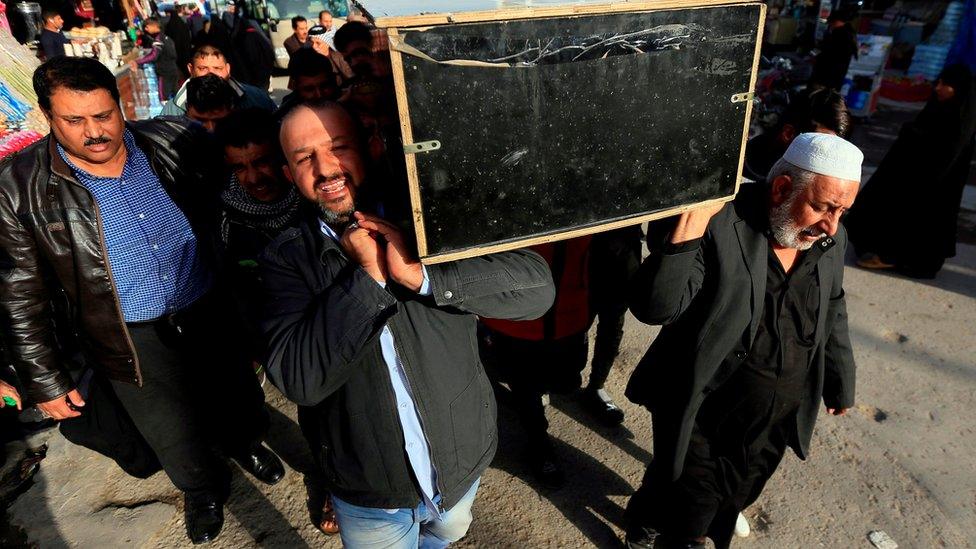
Some victims were buried hours later in the Shia Muslim holy city of Najaf
Two suicide bombers have killed at least 35 people and injured 90 in an attack on a Baghdad square where day labourers gather to look for work.
They set off their devices at intervals, sending people scattering across Tayaran Square in the centre of the Iraqi capital.
Scores of labourers are said to be among the dead and injured.
Attacks on the city had become less frequent since the Islamic State group lost its Iraqi strongholds last year.
The government declared it had retaken all territory overrun by the Sunni Muslim militants since 2014.
How were the attacks mounted?
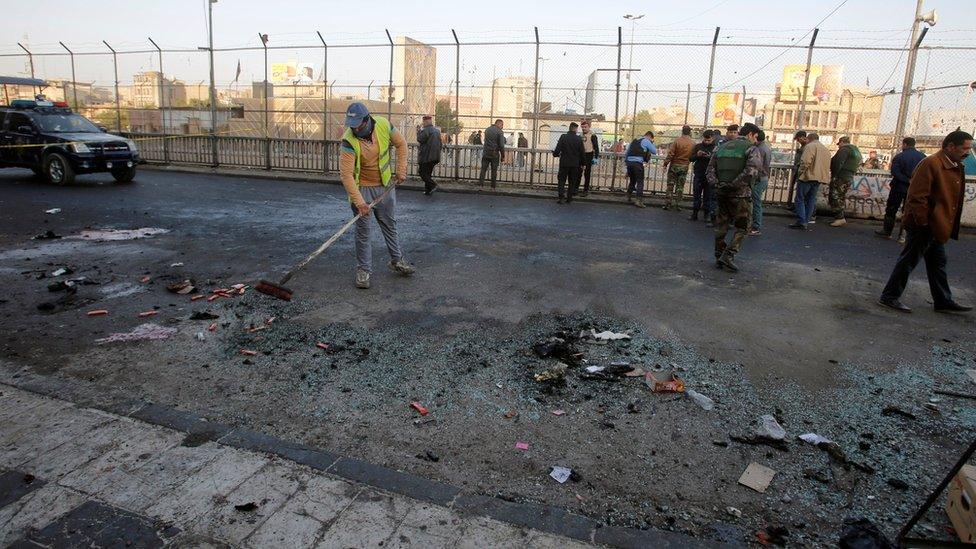
Officials say the death toll could rise
Two men set off suicide bomb belts, the first one detonating his device at around 10:00 (07:00 GMT).
CCTV videos circulated on social media show the moment of the first blast and people fleeing through stalls or carrying at least one person who seems to be injured.
Allow X content?
This article contains content provided by X. We ask for your permission before anything is loaded, as they may be using cookies and other technologies. You may want to read X’s cookie policy, external and privacy policy, external before accepting. To view this content choose ‘accept and continue’.
An eyewitness, Husain Abdallah, told AFP news agency the bomber had just got off a bus.
After the blast Mr Abdallah and others began running and were still trying to escape when the second bomb went off.
Another video, recorded on a mobile phone, captured the moment of that attack and the crowd panic that followed, with what appeared to be shots being fired.
Allow X content?
This article contains content provided by X. We ask for your permission before anything is loaded, as they may be using cookies and other technologies. You may want to read X’s cookie policy, external and privacy policy, external before accepting. To view this content choose ‘accept and continue’.
The attacks were designed to maximise casualties, as is often the case, with one bomb swiftly followed by another, BBC Arab affairs editor Sebastian Usher says.
Large crowds of construction workers gather to find work every morning on Tayaran and it has been targeted by militants in the past.
Another bomb attack in Baghdad on Monday, in the north-eastern district of Jamila, killed two civilians and injured six others, medical and security sources say.
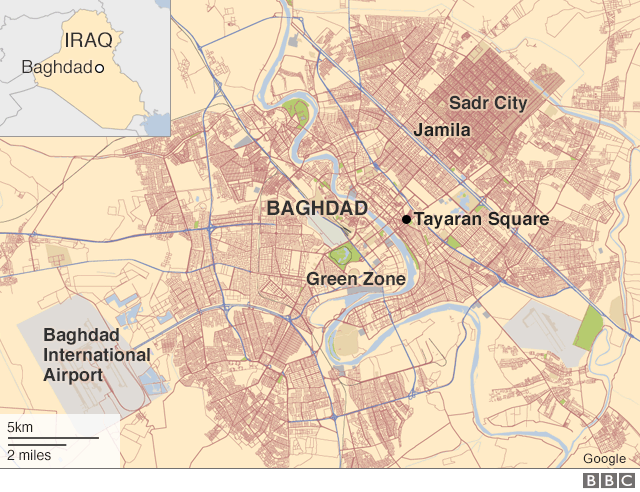
Who carried out the attacks?
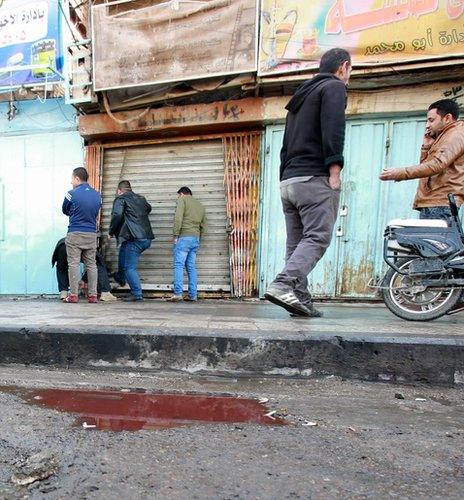
A bloodstained puddle could be seen on the square after the attacks
No group said it had carried out the bombing but such attacks are usually attributed to IS, which regards members of Iraq's majority Shia Muslim community as heretics.
Success by Iraqi forces in defeating IS as a territorial threat is likely to have caused the decrease in attacks recently, as jihadist bomb factories west of Baghdad can no longer operate, our Arab affairs editor adds.
However, there are fears the militants will revert to the guerrilla tactics they have used for so long.
A suicide bomb attack on a checkpoint in the north of the city on Saturday killed at least five people, police said.
How bad have previous attacks been?
Attacks on the square since 2011 have killed 180 people, "often in the run-up to elections or just after the polls", Iraqi analyst Hisham al-Hashemi was quoted as saying by AFP.
Their aim is to "create chaos and exacerbate sectarian divisions", he said.
Other militant attacks in recent years have been even deadlier:
In July 2016 more than 300 civilians were killed and hundreds injured in an IS suicide truck bomb attack on Baghdad's Shia district of Karrada - the deadliest attack by a single bomber in Iraq's history
In November 2016 up to 125 people, many of them Shia pilgrims from Iran and Afghanistan, were killed in a suicide car bombing by IS at a petrol station in Hilla, south of Baghdad
In July 2015 a truck bombing in a marketplace at Khan Bani Saad, Diyala, killed up to 120; it was claimed by IS
On 11 May 2016 multiple bombings in Baghdad targeted mainly Shia districts including Sadr City, killing 93 people; IS said it had carried out two of the attacks
On 17 May 2016 three bombings across Baghdad killed 77, including 41 in Shaab district and 30 in Sadr City
- Published28 March 2018
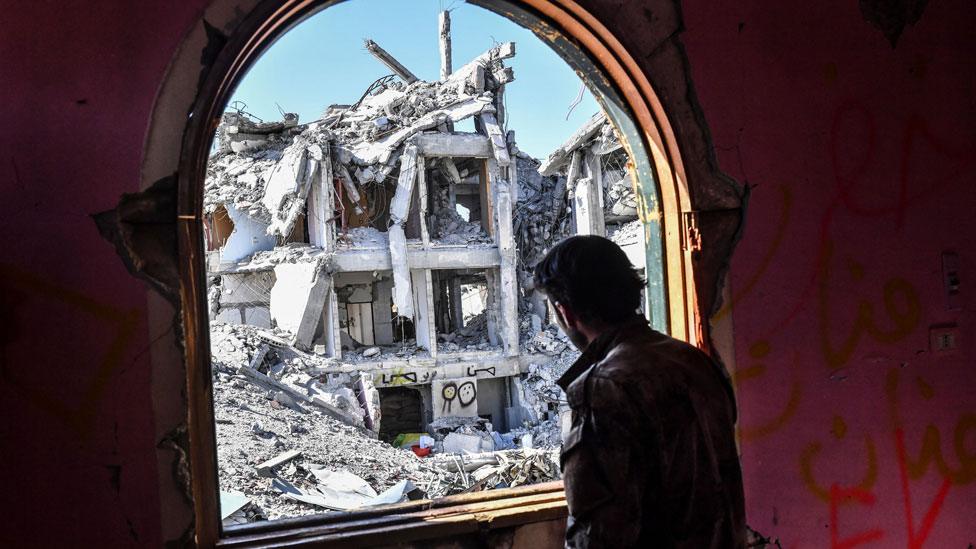
- Published13 September 2023
